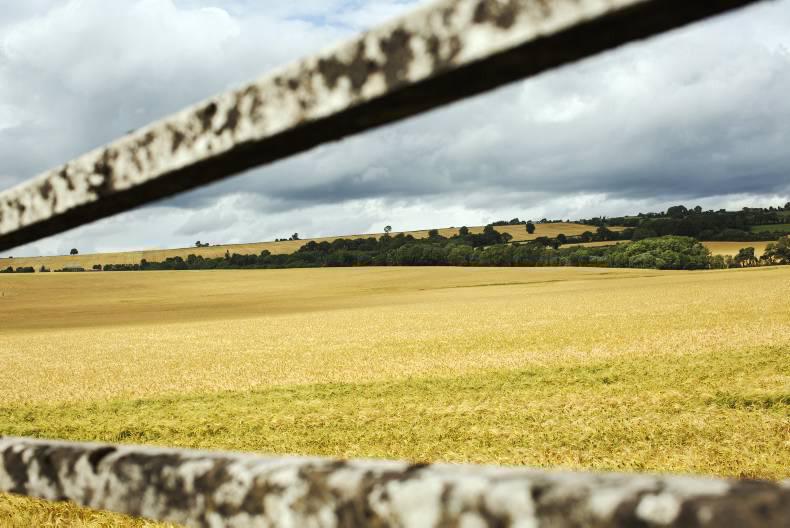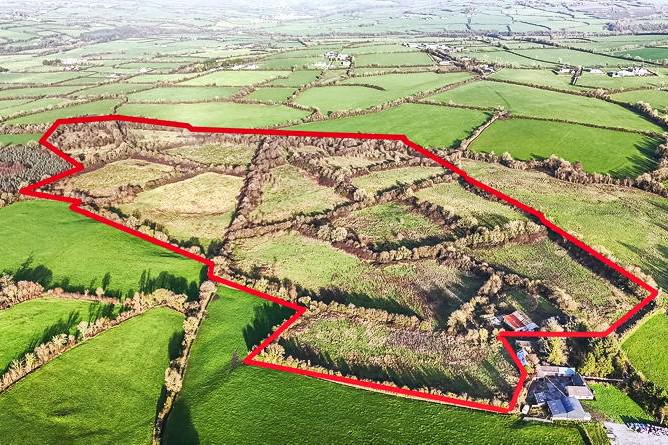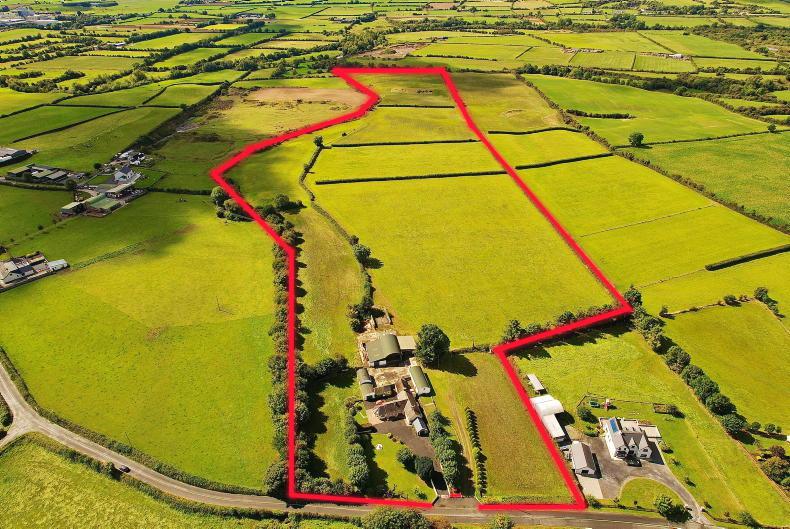A new report by environment protection groups Stop Climate Chaos and the Environmental Pillar has questioned Irish agriculture’s environmental sustainability.
The report entitled ‘Not So Green: Debunking the Myths around Irish Agriculture’ challenges “government and industry claims and shows that Ireland’s current agriculture and land-use policy is neither climate-smart nor sustainable”.
Those behind the study argue that Ireland’s cattle-based agriculture is less efficient than the European average – in terms of the level of greenhouse gases emitted per calorie of bovine food produced – and methane produced per head of cattle has increased in Ireland since 1990.
Climate targets
Spokesperson for the Stop Climate Chaos Coalition, Catherine Devitt, said: “Based on detailed evidence, our analysis clearly shows that Ireland’s livestock agriculture is less efficient than claimed, and does not contribute to global food security.
In fact, due to increasing emissions, the livestock sector is actively contributing to increased climate pollution and global food insecurity, putting the lives and livelihoods of some of the world’s poorest populations at risk.”
Reducing emissions reductions can now only be achieved through a substantial reduction in total cattle numbers
The authors of the report argue that allowing an increase in emissions, inevitable under current policy plans for expansion of the livestock sector, will mean that Ireland will fail to do its part in meeting its EU and Paris Agreement climate targets.
They claim that “reducing emissions reductions can now only be achieved through a substantial reduction in total cattle numbers”.
The extent to which the current model of production actually provides a sustainable livelihood for Irish farmers is also called into question.
Biodiversity
Commenting on the biodiversity implications of Ireland’s proposed strategy to offset emissions from intensive agriculture by intensifying afforestation, Oonagh Duggan, policy officer with BirdWatch Ireland said: “Both agriculture and forestry can be significant pressures and threats to birds and other biodiversity in Ireland. Environmental integrity is lacking in policies that are being rolled out for these sectors.”
The report also claims to identify “glaring inadequacies in the Government’s claim that afforestation presents a viable option to offset increasing emissions from the agricultural sector.
“Land-based carbon sequestration cannot count as climate mitigation because it cannot guarantee the permanent carbon dioxide removal required to limit global warming.”
No other country manages and measures its carbon footprint as much as Ireland
However, the farming industry in Ireland maintains the position that Irish agriculture is more sustainable than in other countries.
IFA environment chair Thomas Cooney rejected the findings and told the Irish Farmers Journal that “no other country manages and measures its carbon footprint as much as Ireland”.
Regarding the livestock sector, Thomas added that all Irish beef is carbon-audited and that the Irish beef sector is the fifth most efficient in Europe, according to a report by the EU’s Joint Research Centre (JRC).
“The same report also found that the Irish dairy sector is the most efficient in Europe,” he said.
The environment chair also called on Minister Creed to reopen the Beef Data and Genomics Programme (BDGP) and GLAS.
87% of the measures in the Rural Development Programme are considered to have a carbon-reducing element
“Those schemes need to be reopened if Ireland is serious about climate change. 87% of the measures in the Rural Development Programme are considered to have a carbon-reducing element,” he said.
“With all the work that is being done, between GLAS and knowledge transfer groups, it has to be improving and this is backed up by the JRC and the UK Carbon Trust.”
Ireland’s green image central to success abroad
Bord Bia’s Origin Green programme was launched just over four years ago in June 2012 and is the world’s first sustainability programme for a country’s entire food and drink sector.
Since it was established, more than 55,000 Irish farms and 122 food and drink companies have become fully verified members of the programme, which is a commitment to over 800 sustainabillity targets around raw material sourcing, manufacturing processes and social sustainability.
According to Bord Bia, Origin Green has met with universal acclaim from the World Bank, the World Wildlife Fund, and from global leaders in the food and drink industry.
Bord Bia also says Ireland’s green image has been a key platform for the success of the Irish food and drink export industry. Last year, Ireland exported to 175 markets, generating €10.5bn for the Irish economy.
Read more
Full coverage: climate change
A new report by environment protection groups Stop Climate Chaos and the Environmental Pillar has questioned Irish agriculture’s environmental sustainability.
The report entitled ‘Not So Green: Debunking the Myths around Irish Agriculture’ challenges “government and industry claims and shows that Ireland’s current agriculture and land-use policy is neither climate-smart nor sustainable”.
Those behind the study argue that Ireland’s cattle-based agriculture is less efficient than the European average – in terms of the level of greenhouse gases emitted per calorie of bovine food produced – and methane produced per head of cattle has increased in Ireland since 1990.
Climate targets
Spokesperson for the Stop Climate Chaos Coalition, Catherine Devitt, said: “Based on detailed evidence, our analysis clearly shows that Ireland’s livestock agriculture is less efficient than claimed, and does not contribute to global food security.
In fact, due to increasing emissions, the livestock sector is actively contributing to increased climate pollution and global food insecurity, putting the lives and livelihoods of some of the world’s poorest populations at risk.”
Reducing emissions reductions can now only be achieved through a substantial reduction in total cattle numbers
The authors of the report argue that allowing an increase in emissions, inevitable under current policy plans for expansion of the livestock sector, will mean that Ireland will fail to do its part in meeting its EU and Paris Agreement climate targets.
They claim that “reducing emissions reductions can now only be achieved through a substantial reduction in total cattle numbers”.
The extent to which the current model of production actually provides a sustainable livelihood for Irish farmers is also called into question.
Biodiversity
Commenting on the biodiversity implications of Ireland’s proposed strategy to offset emissions from intensive agriculture by intensifying afforestation, Oonagh Duggan, policy officer with BirdWatch Ireland said: “Both agriculture and forestry can be significant pressures and threats to birds and other biodiversity in Ireland. Environmental integrity is lacking in policies that are being rolled out for these sectors.”
The report also claims to identify “glaring inadequacies in the Government’s claim that afforestation presents a viable option to offset increasing emissions from the agricultural sector.
“Land-based carbon sequestration cannot count as climate mitigation because it cannot guarantee the permanent carbon dioxide removal required to limit global warming.”
No other country manages and measures its carbon footprint as much as Ireland
However, the farming industry in Ireland maintains the position that Irish agriculture is more sustainable than in other countries.
IFA environment chair Thomas Cooney rejected the findings and told the Irish Farmers Journal that “no other country manages and measures its carbon footprint as much as Ireland”.
Regarding the livestock sector, Thomas added that all Irish beef is carbon-audited and that the Irish beef sector is the fifth most efficient in Europe, according to a report by the EU’s Joint Research Centre (JRC).
“The same report also found that the Irish dairy sector is the most efficient in Europe,” he said.
The environment chair also called on Minister Creed to reopen the Beef Data and Genomics Programme (BDGP) and GLAS.
87% of the measures in the Rural Development Programme are considered to have a carbon-reducing element
“Those schemes need to be reopened if Ireland is serious about climate change. 87% of the measures in the Rural Development Programme are considered to have a carbon-reducing element,” he said.
“With all the work that is being done, between GLAS and knowledge transfer groups, it has to be improving and this is backed up by the JRC and the UK Carbon Trust.”
Ireland’s green image central to success abroad
Bord Bia’s Origin Green programme was launched just over four years ago in June 2012 and is the world’s first sustainability programme for a country’s entire food and drink sector.
Since it was established, more than 55,000 Irish farms and 122 food and drink companies have become fully verified members of the programme, which is a commitment to over 800 sustainabillity targets around raw material sourcing, manufacturing processes and social sustainability.
According to Bord Bia, Origin Green has met with universal acclaim from the World Bank, the World Wildlife Fund, and from global leaders in the food and drink industry.
Bord Bia also says Ireland’s green image has been a key platform for the success of the Irish food and drink export industry. Last year, Ireland exported to 175 markets, generating €10.5bn for the Irish economy.
Read more
Full coverage: climate change










SHARING OPTIONS